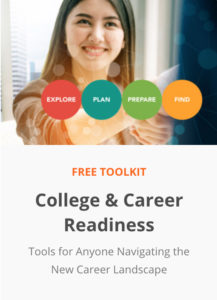Today, in the age of social media, the interview process begins well before your actual interview. These days, most hiring managers search your social media accounts for red flags before your interview (and sometimes before you even get to the interview stage). So, if you have an interview coming up, you’ll want to do some social media cleaning beforehand. Here’s how to do it.
TikTok and Instagram
If any of your social accounts are public instead of private, the first step to pre-interview social media clean-up is to delete all of the questionable photos and videos from your accounts, especially Instagram and TikTok, as those will likely be the first hiring managers will check. Questionable posts can include images and videos from bars and parties, along with any other images or videos you don’t want a person interviewing you to see. You might think leaving these posts on your profile is just being the real you, but they very well could be lowering your chances of getting that job you want.
And even if you’re not the kind of person who posts a lot of party pics, don’t forget to check what your friends post about you. You might open the “tagged” section and find nothing, or you might stumble on something you don’t want out there. Of course, you’ll never know until you check. And if you do find something you want to remove, remove your tag, choose an option to hide the photo from your profile, or ask your friends to take it down.
 Twitter
Twitter
Your Twitter account can be difficult to scrub when it comes to the pre-interview social media clean-up. This is mainly because, on Twitter, there’s a massive pile of things you need to go through. While you may post on Instagram and TikTok once or twice a day, you can tweet unlimited times daily, and you probably can’t say that all your tweets are winners. So, make sure you screen your Twitter profile for anything that might stand out to hiring managers. You can even use a tool to search for phrases in your past tweets. Anything related to your past employers or this selection process should likely be deleted, especially if it’s negative.
If you’re not especially active on LinkedIn, chances are your profile is in dire need of an update. First, choose a photo that depicts you as professional and approachable (no frowning or scowling). You might think you need an overly produced profile photo of yourself in a blazer on a white surface to make your LinkedIn profile look professional, but that’s not the case at all. You really don’t need to put that much effort and money into it. You just have to look like yourself—your work self, which is a slightly more professional photo than a selfie but doesn’t require a studio and pro photographer.
Next, update your title and the “about me” section to reflect the position you’re applying for. Don’t forget to update your previous experience and responsibility, as it may be helpful for a recruiter to see. Then, check if your certifications are up to date or if any courses are available to you for free that might be relevant to your new potential position. Finally, to leave the best possible first impression, ask your friends and connections to endorse your skills that are relevant for this position.
A Final Note
It’s a good rule to never talk about your workplace and employment on your personal social media profiles. Whether you’re simply venting on social media about your employer or discussing a project you’re working on, it can be awkward to bring your professional life into the open. In the former case, you’re disparaging an employer, which is a red flag to hiring managers and a reason to not interview you. In the latter case, you could be disclosing business secrets or other information that might be confidential. So, establish a rule for yourself to refrain from engaging in those kinds of conversations since, in either scenario, potential employers might be hesitant to hire someone who often discusses their work on social media.
Originally published on Vault.
Building a career, unlike finding a job, is a lifelong pursuit.
Check out Infobase’s College and Career Readiness Toolkit.
See also:


